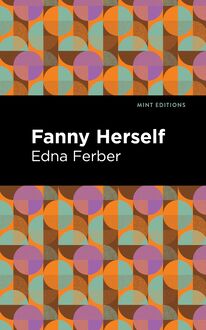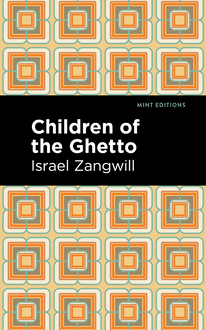-
 Univers
Univers
-
 Ebooks
Ebooks
-
 Livres audio
Livres audio
-
 Presse
Presse
-
 Podcasts
Podcasts
-
 BD
BD
-
 Documents
Documents
-
- Cours
- Révisions
- Ressources pédagogiques
- Sciences de l’éducation
- Manuels scolaires
- Langues
- Travaux de classe
- Annales de BEP
- Etudes supérieures
- Maternelle et primaire
- Fiches de lecture
- Orientation scolaire
- Méthodologie
- Corrigés de devoir
- Annales d’examens et concours
- Annales du bac
- Annales du brevet
- Rapports de stage
La lecture à portée de main
Vous pourrez modifier la taille du texte de cet ouvrage
Découvre YouScribe en t'inscrivant gratuitement
Je m'inscrisDécouvre YouScribe en t'inscrivant gratuitement
Je m'inscrisEn savoir plus
Vous pourrez modifier la taille du texte de cet ouvrage
En savoir plus

Description
Ghetto Tragedies (1899) is a collection of stories by Israel Zangwill. Raised in London by parents from Latvia and Poland, Zangwill understood the plight of the city’s Jewish community firsthand. Having risen through poverty to become an educator and author, he dedicated his career to the voiceless, the oppressed, and the needy, advocating for their rights and bearing witness to their suffering in some of the most powerful novels and stories of the Victorian era. “People who have been living in a Ghetto for a couple of centuries, are not able to step outside merely because the gates are thrown down, nor to efface the brands on their souls by putting off the yellow badges. The isolation imposed from without will have come to seem the law of their being.” As a Jewish immigrant who grew up in poverty in London, Israel Zangwill knows that the condition of life in the ghetto changes not just lives, but mentalities. In the fourth installment of his Ghetto series, Zangwill imagines the lives of everyday Jewish people. Zillah and Jossel, successful boot makers; Daniel Peyser, a father of seven daughters; Isaac Levinsky, the son of a pious Rabbi. These are the lives so lovingly shaped in the author’s skillful hands, people whose experiences with love, loss, doubt, and faith are not so different from our own. The tales of Jewish life in Ghetto Tragedies earned Zangwill comparisons to Dickens upon publication and helped to establish him as an author with a gift for intensive character study and a passion for political themes. With a beautifully designed cover and professionally typeset manuscript, this edition of Israel Zangwill’s Ghetto Tragedies is a classic of British literature reimagined for modern readers.
Sujets
Informations
| Publié par | Mint Editions |
| Date de parution | 12 octobre 2021 |
| Nombre de lectures | 0 |
| EAN13 | 9781513214443 |
| Langue | English |
| Poids de l'ouvrage | 1 Mo |
Informations légales : prix de location à la page 0,0500€. Cette information est donnée uniquement à titre indicatif conformément à la législation en vigueur.
Extrait
Ghetto Tragedies
Israel Zangwill
Ghetto Tragedies was first published in 1899.
This edition published by Mint Editions 2021.
ISBN 9781513216447 | E-ISBN 9781513214443
Published by Mint Editions®
minteditionbooks.com
Publishing Director: Jennifer Newens
Design & Production: Rachel Lopez Metzger
Project Manager: Micaela Clark
Typesetting: Westchester Publishing Services
C ONTENTS I . “ T HEY T HAT W ALK IN D ARKNESS” II . T RANSITIONAL III . N OAH’S A RK IV . T HE L AND OF P ROMISE V . T O D IE IN J ERUSALEM VI . B ETHULAH VII . T HE K EEPER OF C ONSCIENCE VIII . S ATAN M EKATRIG IX . D IARY OF A M ESHUMAD X . “ I NCURABLE” XI . T HE S ABBATH- B REAKER
I
“ T HEY T HAT W ALK IN D ARKNESS”
I
I T WAS NOT TILL SHE had fasted every Monday and Thursday for a twelvemonth, that Zillah’s long yearning for a child was gratified. She gave birth—O more than fair-dealing God!—to a boy.
Jossel, who had years ago abandoned the hope of an heir to pray for his soul, was as delighted as he was astonished. His wife had kept him in ignorance of the fasts by which she was appealing to Heaven; and when of a Monday or Thursday evening on his return from his boot factory in Bethnal Green, he had sat down to his dinner in Dalston, no suspicion had crossed his mind that it was Zillah’s breakfast. He himself was a prosaic person, incapable of imagining such spontaneities of religion, though he kept every fast which it behoves an orthodox Jew to endure who makes no speciality of sainthood. There was a touch of the fantastic in Zillah’s character which he had only appreciated in its manifestation as girlish liveliness, and which Zillah knew would find no response from him in its religious expression.
Not that her spiritual innovations were original inventions. From some pious old crone, after whom (as she could read Hebrew) a cluster of neighbouring dames repeated what they could catch of the New Year prayers in the women’s synagogue, Zillah had learnt that certain holy men were accustomed to afflict their souls on Mondays and Thursdays. From her unsuspecting husband himself she had further elicited that these days were marked out from the ordinary, even for the man of the world, by a special prayer dubbed “the long ‘He being merciful.’ ” Surely on Mondays and Thursdays, then, He would indeed be merciful. To make sure of His good-will she continued to be unmerciful to herself long after it became certain that her prayer had been granted.
II
B OTH Z ILLAH AND J OSSEL LIVED in happy ignorance of most things, especially of their ignorance. The manufacture of boots and all that appertained thereto, the synagogue and religion, misunderstood reminiscences of early days in Russia, the doings and misdoings of a petty social circle, and such particular narrowness with general muddle as is produced by stumbling through a Sabbath paper and a Sunday paper: these were the main items in their intellectual inventory. Separate Zillah from her husband and she became even poorer, for she could not read at all.
Yet they prospered. The pavements of the East End resounded with their hob-nailed boots, and even in many a West End drawing-room their patent-leather shoes creaked. But they themselves had no wish to stand in such shoes; the dingy perspectives of Dalston villadom limited their ambition, already sufficiently gratified by migration from Whitechapel. The profits went to enlarge their factory and to buy houses, a favourite form of investment in their set. Zillah could cook fish to perfection, both fried and stewed, and the latter variety both sweet and sour. Nothing, in fine, had been wanting to their happiness—save a son, heir, and mourner.
When he came at last, little that religion or superstition could do for him was left undone. An amulet on the bedpost scared off Lilith, Adam’s first wife, who, perhaps because she missed being the mother of the human race, hankers after babes and sucklings. The initiation into the Abrahamic covenant was graced by a pious godfather with pendent ear-locks, and in the ceremony of the Redemption of the First-Born the five silver shekels to the priest were supplemented by golden sovereigns for the poor. Nor, though Zillah spoke the passable English of her circle, did she fail to rock her Brum’s cradle to the old “Yiddish” nursery-songs:—
“Sleep, my birdie, shut your eyes,
O sleep, my little one;
Too soon from cradle you’ll arise
To work that must be done.
“Almonds and raisins you shall sell,
And holy scrolls shall write;
So sleep, dear child, sleep sound and well,
Your future beckons bright.
“Brum shall learn of ancient days,
And love good folk of this;
So sleep, dear babe, your mother prays,
And God will send you bliss.”
Alas, that with all this, Brum should have grown up a weakling, sickly and an æ mic, with a look that in the child of poorer parents would have said starvation.
III
Y ET THROUGH ALL THE VICISSITUDES of his infantile career, Zillah’s faith in his survival never faltered. He was emphatically a child from Heaven, and Providence would surely not fly in its own face. Jossel, not being aware of this, had a burden of perpetual solicitude, which Zillah often itched to lighten. Only, not having done so at first, she found it more and more difficult to confess her negotiation with the celestial powers. She went as near as she dared.
“If the Highest One has sent us a son after so many years,” she said in the “Yiddish” which was still natural to her for intimate domestic discussion, “He will not take him away again.”
“As well say,” Jossel replied gloomily, “that because He has sent us luck and blessing after all these years, He may not take away our prosperity.”
“Hush! don’t beshrew the child!” And Zillah spat out carefully. She was tremulously afraid of words of ill-omen and of the Evil Eye, against which, she felt vaguely, even Heaven’s protection was not potent. Secretly she became more and more convinced that some woman, envious of all this “luck and blessing,” was withering Brum with her Evil Eye. And certainly the poor child was peaking and pining away. “Marasmus,” a physician had once murmured, wondering that so well dressed a child should appear so ill nourished. “Take him to the seaside often, and feed him well,” was the universal cry of the doctors; and so Zillah often deserted her husband for a kosher boarding-house at Brighton or Ramsgate, where the food was voluminous, and where Brum wrote schoolboy verses to the strange, fascinating sea.
For there were compensations in the premature flowering of his intellect. Even other mothers gradually came round to admitting he was a prodigy. The black eyes seemed to burn in the white face as they looked out on the palpitating universe, or devoured every and any scrap of print! A pity they had so soon to be dulled behind spectacles. But Zillah found consolation in the thought that the glasses would go well with the high black waistcoat and white tie of the British Rabbi. He had been given to her by Heaven, and to Heaven must be returned. Besides, that might divert it from anymore sinister methods of taking him back.
In his twelfth year Brum began to have more trouble with his eyes, and renewed his early acquaintance with the drab ante-rooms of eye hospitals that led, at the long-expected ting-ting of the doctor’s bell, into a delectable chamber of quaint instruments. But it was not till he was on the point of Bar-Mitzvah (confirmation at thirteen) that the blow fell. Unwarned explicitly by any physician, Brum went blind.
“Oh, mother,” was his first anguished cry, “I shall never be able to read again.”
IV
T HE PREPARED FESTIVITIES ADDED IRONIC complications to the horror. After Brum should have read in the Law from the synagogue platform, there was to have been a reception at the house. Brum himself had written out the invitations with conscious grammar. “Present their compliments to Mr. and Mrs. Solomon and shall be glad to see them ” (not you , as was the fashion of their set). It was after writing out so many notes in a fine schoolboy hand, that Brum began to be conscious of thickening blurs and dancing specks and colours. Now that the blind boy was crouching in hopeless misery by the glowing fire, where he had so often recklessly pored over books in the delicious dusk, there was no one handy to write out the countermands. As yet the wretched parents had kept the catastrophe secret, as though it reflected on themselves. And by every post the Confirmation presents came pouring in.
Brum refused even to feel these shining objects. He had hoped to have a majority of books, but now the preponderance of watches, rings, and penknives, left him apathetic. To his parents each present brought a fresh feeling of dishonesty.
“We must let them know,” they kept saying. But the tiny difficulty of writing to so many prevented action.
“Perhaps he’ll be all right by Sabbath,” Zillah persisted frenziedly. She clung to the faith that this was but a cloud: for that the glory of the Confirmation of a future Rabbi could be so dimmed would argue an incomprehensible Providence. Brum’s performance was to be so splendid—he was to recite not only his own portion of the Law but the entire Sabbath Sedrah (section).
“He will never be all right,” said Jossel, who, in the utter breakdown of Zillah, had for the first time made the round of the doctors with Brum. “None of the physicians, not even the most expensive, hold out any hope. And the dearest of all said the case puzzled him. It was like the blindness that often breaks out in Russia after the great fasts, and specially affects delicate children.”
“Yes, I remember,” said Zillah; “but that was only among the Christians.”
“We have so many Christian customs nowadays,” said Jossel grimly; and he thought of the pestilent heretic in his own synagogue who advocated that ladies should be added to the choir.
“Then what shall we do about the people?” moaned Zillah, wr
-
 Univers
Univers
-
 Ebooks
Ebooks
-
 Livres audio
Livres audio
-
 Presse
Presse
-
 Podcasts
Podcasts
-
 BD
BD
-
 Documents
Documents
-
Jeunesse
-
Littérature
-
Ressources professionnelles
-
Santé et bien-être
-
Savoirs
-
Education
-
Loisirs et hobbies
-
Art, musique et cinéma
-
Actualité et débat de société
-
Jeunesse
-
Littérature
-
Ressources professionnelles
-
Santé et bien-être
-
Savoirs
-
Education
-
Loisirs et hobbies
-
Art, musique et cinéma
-
Actualité et débat de société
-
Actualités
-
Lifestyle
-
Presse jeunesse
-
Presse professionnelle
-
Pratique
-
Presse sportive
-
Presse internationale
-
Culture & Médias
-
Action et Aventures
-
Science-fiction et Fantasy
-
Société
-
Jeunesse
-
Littérature
-
Ressources professionnelles
-
Santé et bien-être
-
Savoirs
-
Education
-
Loisirs et hobbies
-
Art, musique et cinéma
-
Actualité et débat de société
- Cours
- Révisions
- Ressources pédagogiques
- Sciences de l’éducation
- Manuels scolaires
- Langues
- Travaux de classe
- Annales de BEP
- Etudes supérieures
- Maternelle et primaire
- Fiches de lecture
- Orientation scolaire
- Méthodologie
- Corrigés de devoir
- Annales d’examens et concours
- Annales du bac
- Annales du brevet
- Rapports de stage















